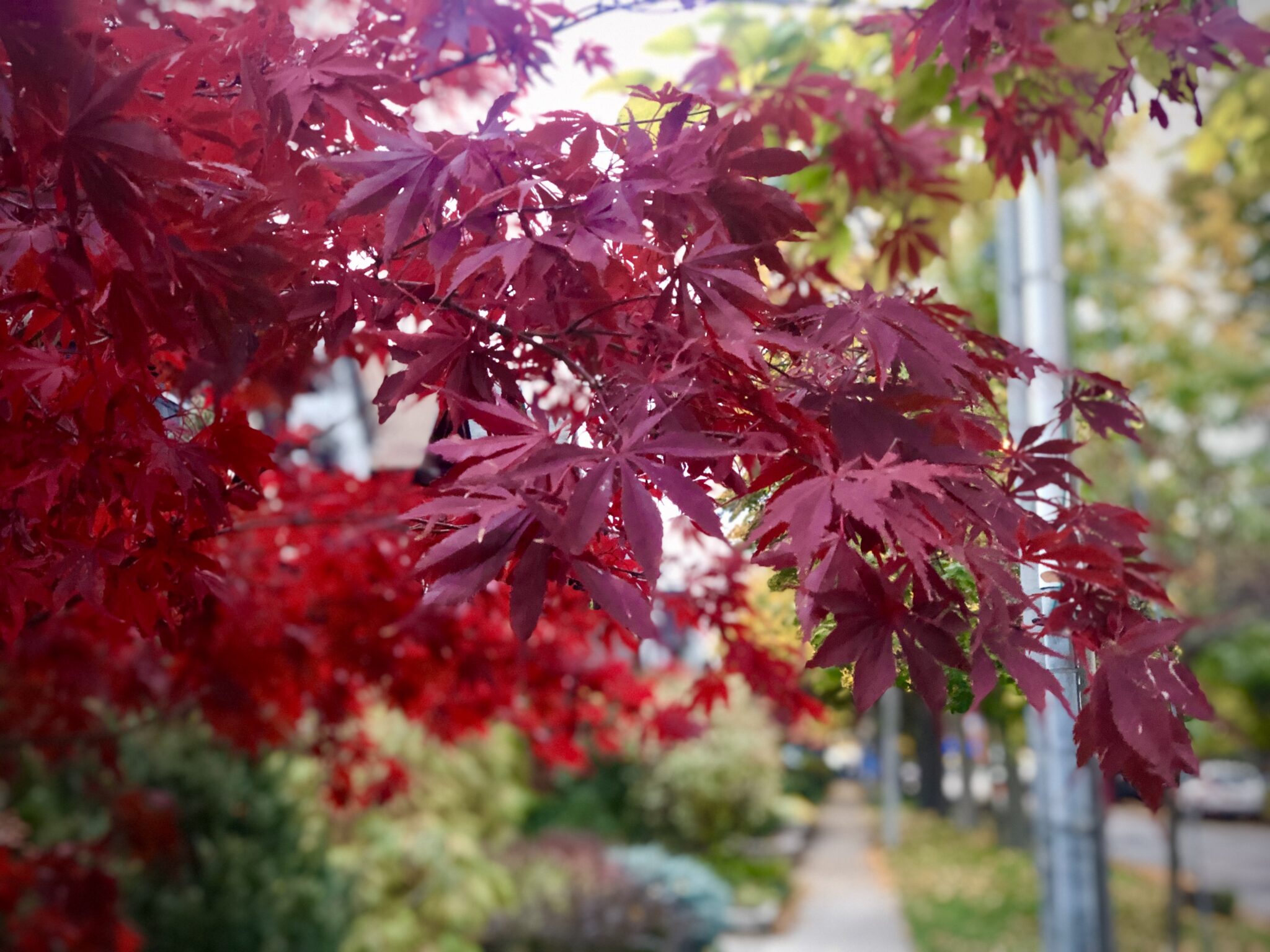Posts Tagged ‘pandemic’
Marija – Grieving Situational Losses in a Pandemic
Marija – Grieving Situational Losses in a Pandemic
Marija talks about feelings associated with grief and Covid
Adrianna – Pandemic, funerals and celebration of life
Adrianna – Pandemic, funerals and celebration of life
Adrianna talks about the death of her friend during pandemic
Holly – Singing in the last days
Holly – Singing in the last days
Holly talks about her partner’s pancreatic cancer diagnosis, the pandemic, their decisions, faith and how singing
Practical Possibilities for Mourning in a Pandemic
Post by Maureen Pollard, MSW, RSW
Practical Possibilities for Mourning in a Pandemic
When someone we care about dies, we have a natural reaction of grief. During a pandemic, many restrictions and precautions we are living with to help prevent the spread of virus can interfere with the ways we are used to coping with the experience of grief. Here are some strategies that can help:
Hold a small, personal gathering and share it with live-streaming. You can use Facebook or Instagram Live to share your ceremony with people who might want to observe it since they can’t participate in person, thus ensuring that anyone who loved the person can honour their passing.
Hold an interactive virtual gathering to celebrate the person’s life. Just about everyone can Zoom these days, and in a virtual meeting you can join in and take turns telling stories about the person who died, or play music and remember together in a more personal and interactive way than by live-streaming a small ceremony.
Create a slideshow using photographs and music. You can tell the story of the person’s life using photos through the years and with music they loved, or you can make a tribute to the things that were important to them or about them in their last years of life.
Create a memory book either using a scrapbook, or an on-line photo-book service. Again, you can show their life over time, or create small personalized books that show their relationship with you, or with other special people in their life.
Dedicate a space in the house to the person who died. It could be a shelf or a corner table. Place their picture there, and maybe a candle or something that reminds you of them. Spend some time in this spot when you want to feel close to the person.
Dedicate a time each day to grieving. You may find that by setting aside particular times of the day or week to miss and mourn the person who died, your grief becomes less intrusive as you go about the tasks of your everyday life.
Bring out their favourites. Watching their favourite movie, playing their favourite songs and eating their favourite foods can bring back positive memories. Wearing their favourite robe or sweater can help them feel close.
Find your own favourites. Choose a movie, music or other sensory experience that reminds you of them in a way that you find soothing. Sometimes it can be too hard to revisit their favourites but it can be comforting to choose your own.
Make art in their memory. Paint or draw a picture. Write a poem or story. Write a song or choreograph a dance. Create a sculpture or needlework. Art helps us express powerful feelings in a wide variety of ways and can help us heal.
Take care of yourself. Be gentle and do the things that bring you comfort and ease. Maybe a long hike. A hot shower or bubble bath. Cuddling up on the couch with a cup of tea and a good book. By giving yourself calming, pleasant sensory experiences you give your heart time to heal.
Cheryl B – Music and how it affects me
Cheryl B – Music and how it affects me
Cheryl explains how songwriting and singing has helped her with grief and with the pandemic
Maureen – Writing a song for a friend who is dying
Maureen – Writing a song for a friend who is dying
Maureen talks about writing as song for a dying friend
When Death is a Natural Part of Your Workplace
Post by Maureen Pollard, MSW, RSW
When Death is a Natural Part of Your Workplace
Staff and volunteers in hospice, long-term care facilities and hospitals know that death is a part of life. You typically witness death on a regular basis as part of your job. As a result, there are some important steps you can take to engage in self care and look after yourself when loss and grief are a part of the emotional landscape in your workplace.
Consider your personal experience of loss.
Self awareness is helpful as we reflect on events in our life, our personality and our actions. Think about family and friends who have died. Reflect on your grief. How did you feel? What did you do to honour the loss? Was there something that helped you cope with your grief?
Honour your relationships.
When death is part of your work, you become good at dealing with the practical aspects. Loss of life may be business as usual, and your training, skill and experience allows you to do what is necessary and then move to the next tasks. As a result, it can be surprising when a death happens that touches you. Remember that grief is really about relationship. It’s natural to feel more attached to some patients because of a personal connection that develops as you care for them over time or because they remind you of someone you love. When you have some relationship with the person who died, you’re much more likely to need a bit of time to process your grief.
Be aware of the impact of accumulation.
It may be that very few of the workplace deaths you encounter feel personal. As a result, you become very good at moving through the tasks of caring for the dying and coping with death. This is a normal development as you gain experience in the field. However, it may come to pass that you feel the weight of the number of deaths you attend to over time. This is also a normal occurrence. It’s as if each death is a rock you place in the backpack you carry. On it’s own, one rock is not too heavy to carry. Eventually a backpack full of rocks becomes impossible to lift. It’s important to have healthy ways to express your feelings and release these “rocks” now and again throughout your career.
Feel it, then heal it.
When grief comes to you, whether it is in your personal life or due to deaths you experience in the course of your work, take the time you need to mourn. Each death will bring a range of unique feelings. Some will take a long time to mourn and others will be a small diversion on your path. When you honour each loss according to the depth of love reflected in the relationship with the person who died, and take time to heal, it increases your capacity to carry on in your work as an excellent professional caregiver.
Ways to Mourn During the Pandemic
Post by Maureen Pollard, MSW, RSW
Ways to Mourn During the Pandemic
The restrictions related to the global pandemic are intended to slow the spread of covid-19. Physical distancing, the declaration of a state of emergency and rules to prevent gathering in groups also impacts our usual ways of coming together in bereavement.
It is customary for immediate family and close friends to attend for final visits if the death is expected. After death, there are many rituals, ceremonies and customs that involve gathering together to remember, honour and celebrate the person who has died. When you can’t gather to comfort one another, there are still many ways you can mark the death of a loved one.
Use Technology
You can schedule on-line video sessions using FaceTime, Skype, Zoom or other platforms to host virtual gatherings at times when the bereaved would normally be offered condolences and comfort in person such as a visitation, a wake, shiva or other mourning traditions. Similarly, it is possible to use livestream technology to invite family and friends to observe any private ceremony or service that is allowed for the immediate family. This technology has been available through funeral officiants in the past, and during the pandemic it has become a much more familiar experience as such technology becomes the only safe way to attend and offer sympathy and support in the immediate aftermath of a death.
Create Personal Ceremony
While it is customary to come together for a public, shared mourning through traditional gatherings, it can be equally meaningful to create private ritual and ceremony to honour your relationship with the person who died. You may choose to light a candle, recite a prayer or poem, listen to music that feels sacred to you in connection with the relationship or create art to express your feelings. You may choose to share images with others through social media, by email or text. You might create an audio-visual presentation to share with other mourners that tells the story of your relationship with the person who died. These personal expressions of grief and love, shared in community, may help create the feeling of connection and comfort that is usually found in traditional in-person gatherings.
Plan For the Future
This is a difficult time, and no one can say how long the restrictions will last. At some time in the future, covid-19 will be managed by the scientific and medical communities and the rules of physical distancing will be eased. While you wait for that time to come, you may find some comfort in planning a more traditional gathering of family and friends to honour and celebrate the life of your loved one once the situation evolves and it is safe to gather once more.
Maureen – End stages during a pandemic
Maureen – End stages during a pandemic
Maureen talks about the end stages of her father-in-law during the pandemic.
Maureen – Compounded grief during a pandemic
Maureen – Compounded grief during a pandemic
Maureen discusses how grief can be compounded during a pandemic
Maureen – Funeral during the pandemic
Maureen – Funeral during the pandemic
Maureen talks about funeral arrangements during a pandemic
Maureen – Isolated in a nursing home
Maureen – Isolated in a nursing home
Maureen talks about her father-in-law isolated and palliative during the pandemic



